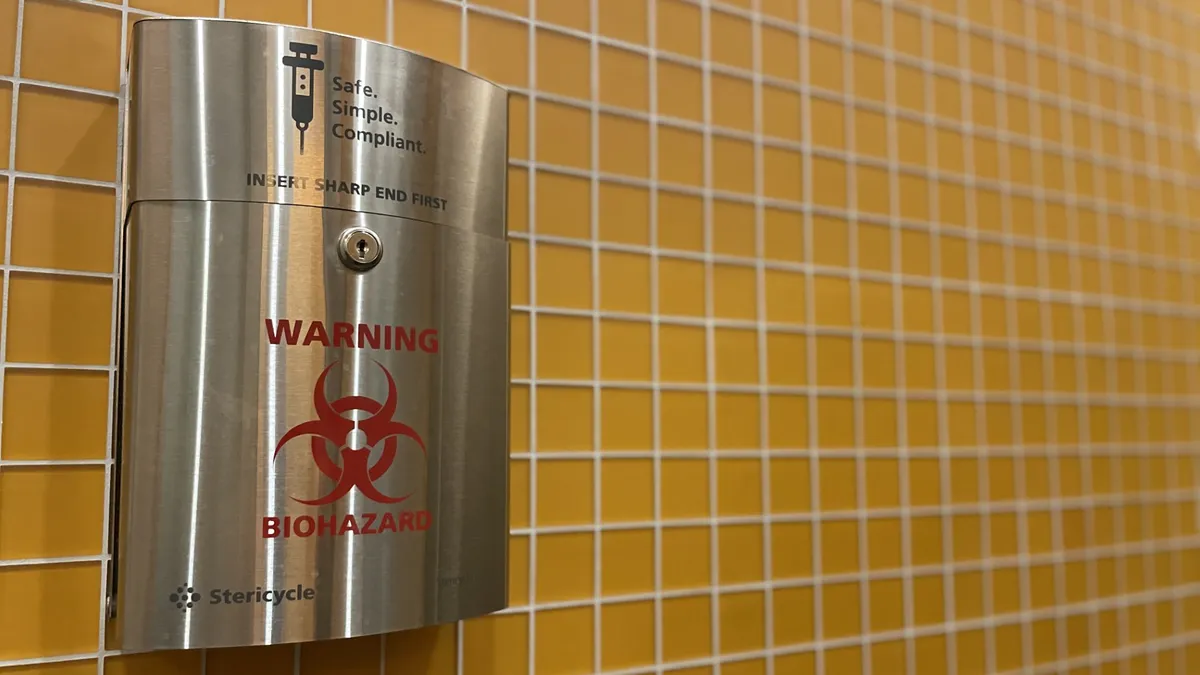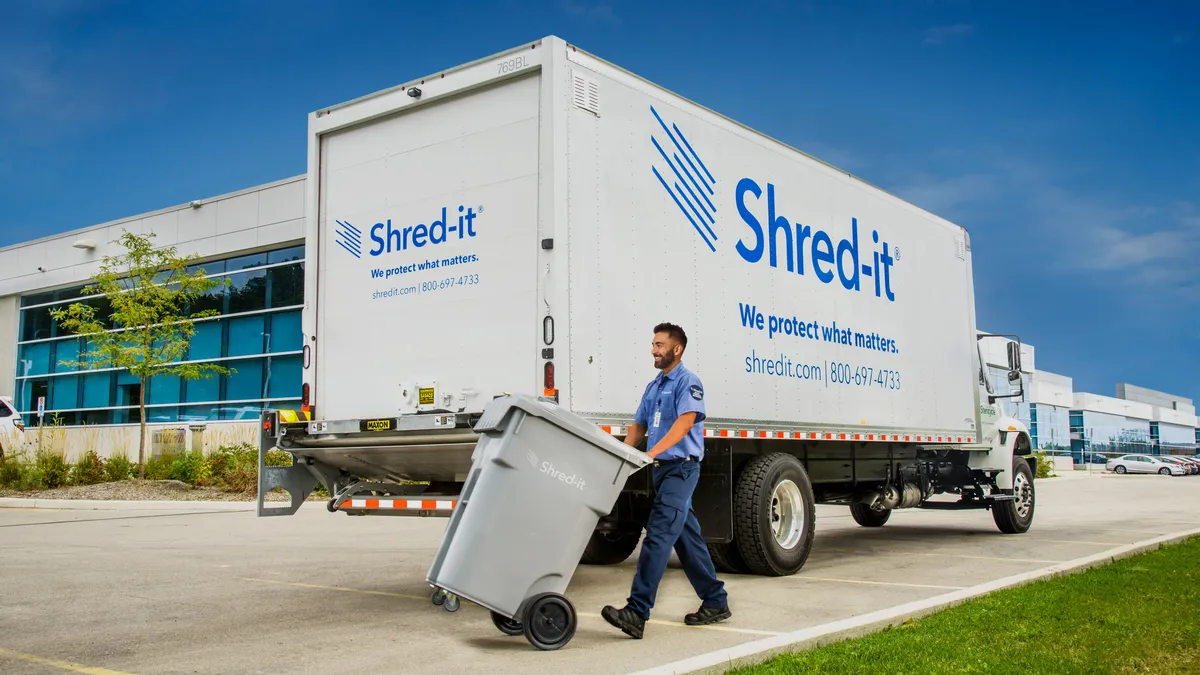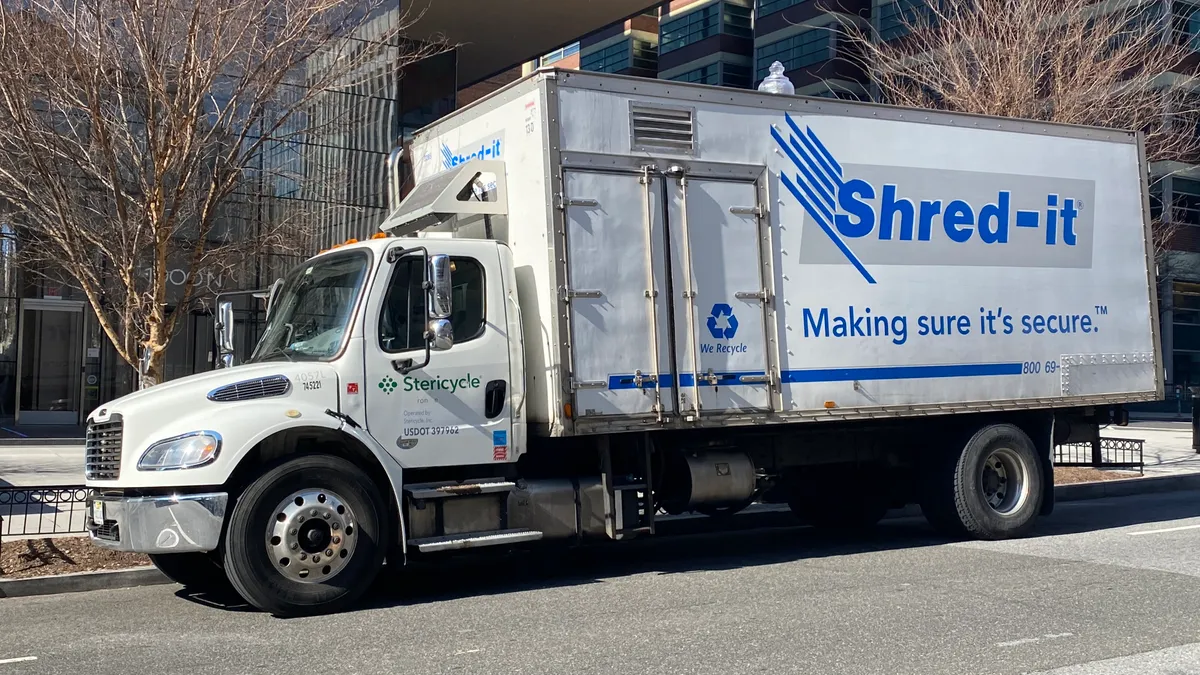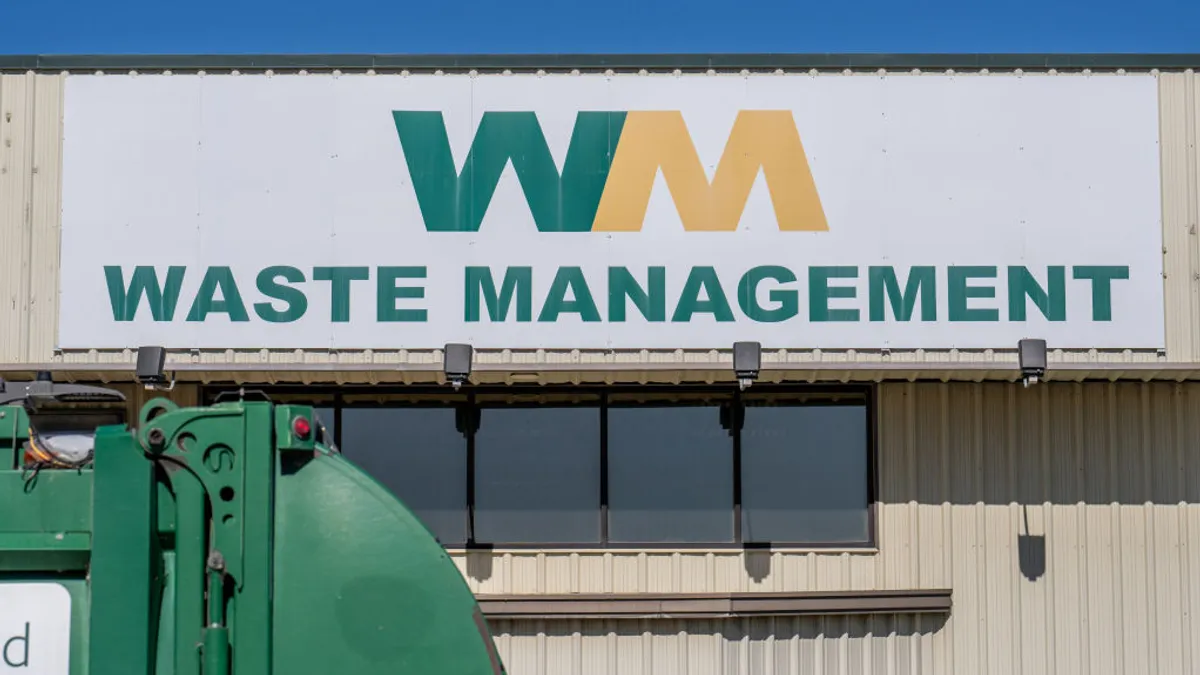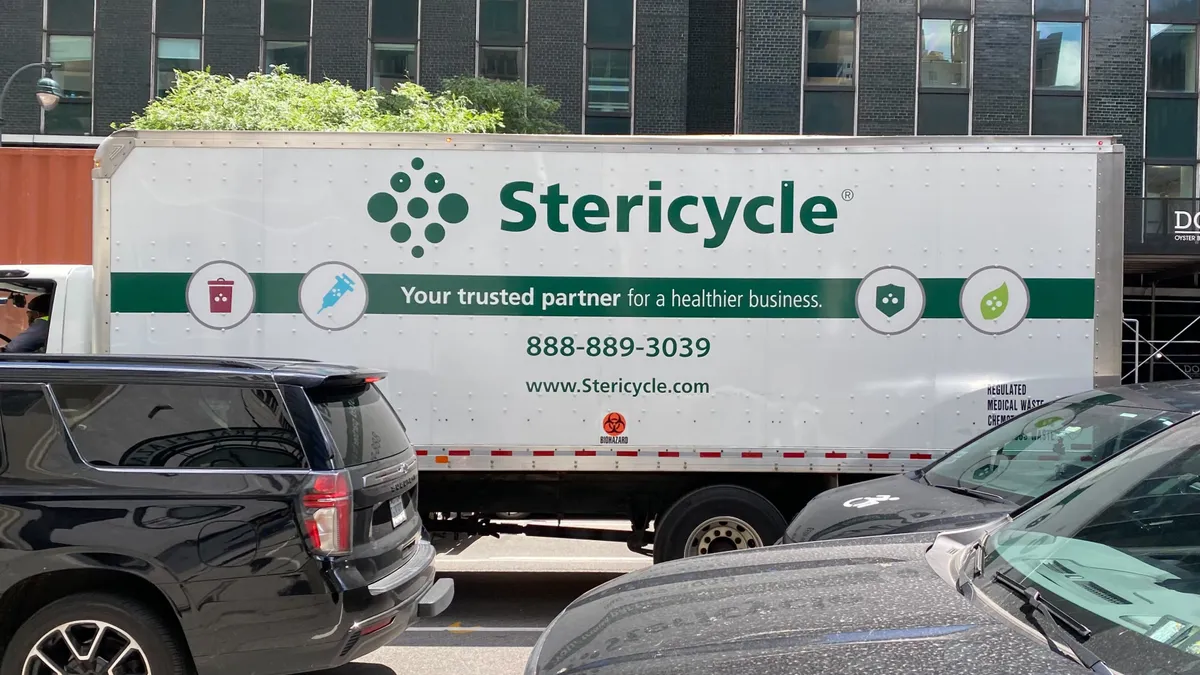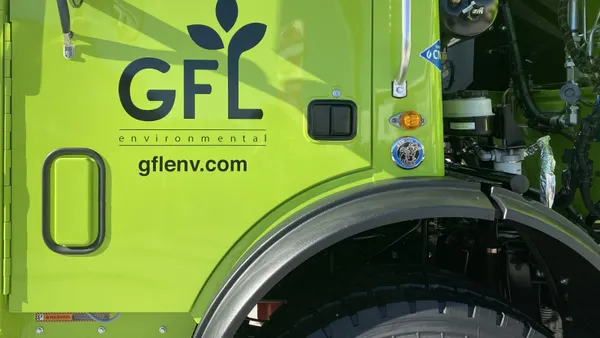UPDATE: Sept. 6, 2024: WM’s plan to acquire Stericycle passed a key step this week after it cleared antitrust review by the U.S. Department of Justice and Federal Trade Commission. A securities filing disclosed that the company voluntarily withdrew its application for review and refiled in early August. The 30-day waiting period for antitrust action has now expired.
The companies also disclosed they’ve received antitrust clearance from regulators in Portugal and the U.K., but are waiting for clearance in Canada and Spain. The transaction is targeted to close “as early as” Q4.
Dive Brief:
- Aug. 14: A majority of Stericycle shareholders have voted to approve the company’s sale to WM, a key step in moving forward with the $7.2 billion deal.
- At the close of the deal, which WM says is expected as early as the fourth quarter this year, Stericycle shareholders will get $62 per share, and the company will become a wholly owned subsidiary of WM.
- WM sees the acquisition as an important opportunity to break into the medical waste market, which it expects to grow in coming years due to aging populations. WM has previously highlighted Stericycle’s strong balance sheet and business efficiency efforts as reasons to move forward with the deal.
Dive Insight:
Securities filings shed light on the path Stericycle and WM took to enter into the deal.
Stericycle management and its board have considered “a variety” of possible strategic moves in the last few years “in light of industry developments and changing economic and market conditions,” according to filings. That included meeting with private equity or other “strategic parties” throughout 2022 and 2023.
One of those discussions didn’t move forward, in part because the party said there was “uncertainty around Stericycle’s future performance” due in part to the company’s enterprise resource planning implementation process. The party was also concerned with how a possible merger might affect the consolidated EBITDA margin of the combined company, according to filings.
Stericycle had been in talks with WM as early as 2019. Back then, the two companies had discussions “regarding a potential business combination transaction,” but WM did not submit any formal proposals or express interest in a potential deal.
The two companies rekindled discussions in August 2023, when WM CEO Jim Fish told Stericycle’s board chairman, Robert Murley, that WM was interested in “exploring transaction opportunities,” according to filings.
In a September meeting between the two companies in Lake Forest, Illinois, Murley and Stericycle CEO Cindy Miller stood by Stericycle’s business strategy and their belief that the company’s stock price was undervalued, but said the company was still open to some kind of business opportunity with WM.
Fish later followed up in November after Stericycle reported its Q3 earnings, where he congratulated the company on implementing its enterprise resource planning system and said WM was still interested in continuing business deal talks. During another phone call later that month, Fish told Murley that WM was interested specifically in acquiring Stericycle in an all-cash transaction “at a meaningful premium to the then-current trading price of Stericycle’s common stock.”
Throughout December 2023 and January 2024, the two companies continued to discuss potential deal details together with representatives from BofA Securities, Stericycle’s financial advisor, and WM’s financial advisor, Centerview Partners.
One matter was negotiating the per-share price WM would offer. WM had first proposed $60.50 a share, which Stericycle said was too low based on the company’s growth profile. After a lull in negotiations, WM offered an updated proposal of $65 a share in April.
During this time, Stericycle had also sought out several other entities to explore possible business deals. That process included talks with three private equity parties, two of which are private equity sponsors of infrastructure funds. Stericycle also reached out to an additional “strategic party” about a possible deal. One entity dropped out of talks when they determined they could not offer more than “low 50s” for a per-share price, while another party decided not to move forward with more talks.
Separately, a “smaller strategic party in the medical waste disposal industry” contacted Stericycle to see if the company was interested in a possible sale, but those discussions did not move forward because Miller and CFO Janet Zelenka determined that party would not be competitive in offering a comparable deal to WM’s, according to filings.
On May 21, WM offered to acquire Stericycle for a price of $62 per share, indicating the decrease in the per-share price was because the company’s IT advisor had noted the need for additional technology investments, and also because WM thought there could be a delay in being able to realize synergies. WM also noted Stericycle’s ongoing costs “with respect to certain pending legal matters.”
Three days later, Bloomberg reported that Stericycle was considering a possible sale, prompting Murley to ask Fish for WM’s commitment to the sale on or before June 3, “in light of the media reports.” The two companies officially announced the deal on June 3.
The deal must still go through the regulatory approval process with the Department of Justice, and WM’s anticipated Q4 close could be pushed back if WM receives a second request from the DOJ. The status of that process is unclear. A WM spokesperson said the company did not have updates to provide on the matter, while a spokesperson for Stericycle declined to comment on the antitrust filing process.




